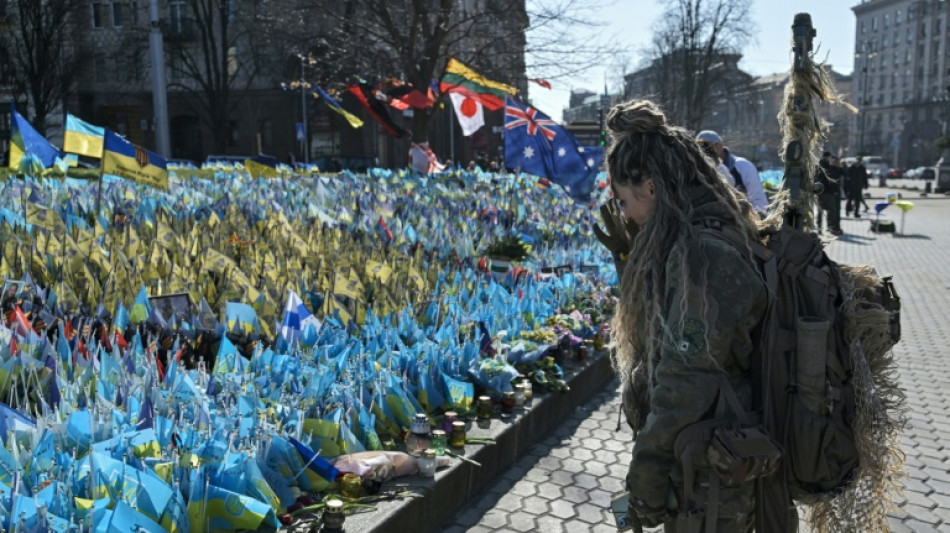
-
 Schauffele birdies final hole, captures first major at PGA Championship
Schauffele birdies final hole, captures first major at PGA Championship
-
McLaughlin powers to Indy 500 pole in all-Penske front row

-
 Monaco footballer tapes over LGBTQ badge
Monaco footballer tapes over LGBTQ badge
-
Korda wins sixth LPGA title of year with win at Liberty National

-
 Pacers put on shooting show to down Knicks, reach NBA Eastern Conference finals
Pacers put on shooting show to down Knicks, reach NBA Eastern Conference finals
-
US envoy touts 'potential' of Israel-Saudi deal in Netanyahu talks
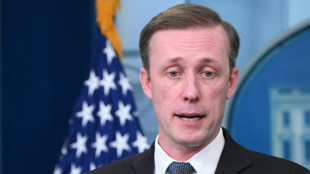
-
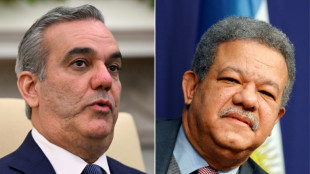 Dominicans vote for president in poll overshadowed by Haiti crisis
Dominicans vote for president in poll overshadowed by Haiti crisis
-
Brest secure Champions League qualification, PSG win without Mbappe

-
 Mbappe absent as PSG win final Ligue 1 game
Mbappe absent as PSG win final Ligue 1 game
-
Still exhausted after arrest, Scheffler closes with 64 at PGA

-
 Brest secure historic Champions League qualification
Brest secure historic Champions League qualification
-
France's Macron calls fresh emergency on New Caledonia unrest

-
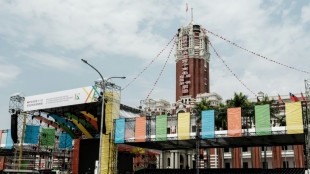 Taiwan swears in new president as China pressure grows
Taiwan swears in new president as China pressure grows
-
Schauffele leads as dramatic PGA back-nine battle begins

-
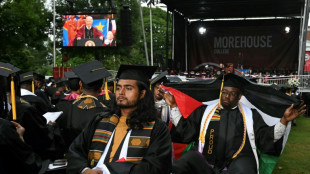 Biden faces silent Gaza protest at Martin Luther King Jr's college
Biden faces silent Gaza protest at Martin Luther King Jr's college
-
Ten Hag says Man Utd 'must do everything' to win FA Cup after Premier League flop

-
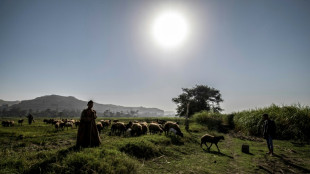 Cannes film follows Egypt feminists on brink of adulthood
Cannes film follows Egypt feminists on brink of adulthood
-
Pep Guardiola: Man City manager addicted to winning

-
 Jackson wins season opener in Marrakesh with all eyes on Paris
Jackson wins season opener in Marrakesh with all eyes on Paris
-
Things get real as imaginary friend flick 'If' tops N.America box office

-
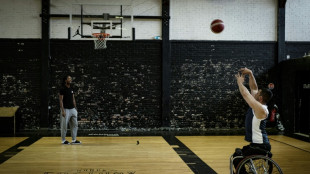 Paris seeks to boost sluggish sales for Paralympic Games
Paris seeks to boost sluggish sales for Paralympic Games
-
How a French director pulled off Cannes's crazy Mexican narcos hit

-
 Man City make case to be ranked as England's greatest-ever team
Man City make case to be ranked as England's greatest-ever team
-
Hamdy gives Zamalek second CAF Confederation Cup title

-
 Rome champion Zverev eyes French Open but wary of Djokovic 'at his best'
Rome champion Zverev eyes French Open but wary of Djokovic 'at his best'
-
Spain recalls its ambassador to Argentina over 'insult'

-
 Real Sociedad reach Europa League, Cadiz relegated
Real Sociedad reach Europa League, Cadiz relegated
-
Man City's six Premier League titles in seven years 'insane': Guardiola

-
 Dramatic last-round showdown under way at PGA Championship
Dramatic last-round showdown under way at PGA Championship
-
It may take 100 points to stop Man City, says Arsenal boss Arteta

-
 Arteta has Arsenal primed for success despite title pain
Arteta has Arsenal primed for success despite title pain
-
Klopp hails 'superpower' fans in emotional Liverpool farewell

-
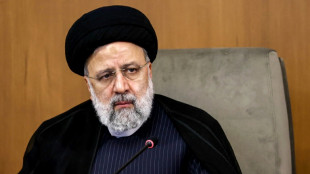 Intense search for Iran's President Raisi after helicopter 'accident'
Intense search for Iran's President Raisi after helicopter 'accident'
-
Nine dead after attacks on Mexican mayoral candidates
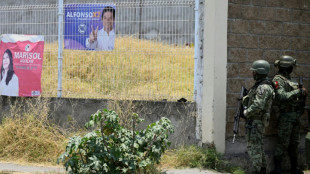
-
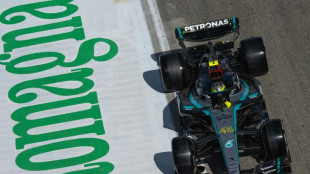 Hamilton says Mercedes in 'no man's land'
Hamilton says Mercedes in 'no man's land'
-
Inter held by Lazio at title party as debt deadline looms, Sassuolo down

-
 'We want more than this': Arteta urges Arsenal to respond after title pain
'We want more than this': Arteta urges Arsenal to respond after title pain
-
Five reasons why Man City won the Premier League

-
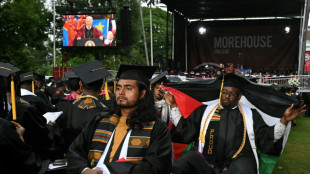 Biden says Gaza protester voices 'should be heard'
Biden says Gaza protester voices 'should be heard'
-
Hyderabad finish second after last IPL league match washed out

-
 Winning feeling never gets old for Man City 'sniper' Foden
Winning feeling never gets old for Man City 'sniper' Foden
-
Man City win historic fourth straight Premier League title

-
 Haaland wins second Premier League Golden Boot
Haaland wins second Premier League Golden Boot
-
Arsenal's title dreams dashed despite last-day win over Everton

-
 Foden fires Man City to record fourth consecutive Premier League title
Foden fires Man City to record fourth consecutive Premier League title
-
Zverev beats Jarry to claim second Rome Open title

-
 Imola proves McLaren are back in business predicts Norris
Imola proves McLaren are back in business predicts Norris
-
Sean 'Diddy' Combs apologizes after video shows him assaulting partner

-
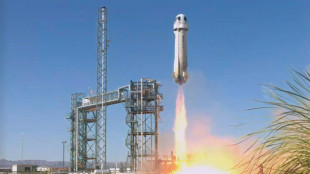 Blue Origin flies thrill seekers to space, including oldest astronaut
Blue Origin flies thrill seekers to space, including oldest astronaut
-
S.Africa top court to rule on Zuma election ban Monday


Ukraine lawmakers back bill allowing prisoners to join army
Ukraine's parliament on Wednesday passed a bill that would enable some prisoners to fight in the armed forces, as the nation faces a critical shortage of manpower on the front lines.
Long opposed to the measure and having criticised Moscow's mobilisation of prisoners to fill its ranks, Kyiv has recently U-turned amid fresh Russian advances on the battlefield.
The legislation would need to be signed by the chairperson of parliament -- the Verkhovna Rada -- and President Volodymyr Zelensky before coming into force.
"The parliament has voted 'yes'," MP Olena Shuliak, head of Zelensky's party, said in a Facebook post.
"The draft law opens the possibility for certain categories of prisoners who expressed a desire to defend their country to join the Defence Forces," she said.
Mobilisation would be voluntary and only open to certain categories of prisoners.
Among those not eligible to serve include those found guilty of sexual violence, killing two or more people, serious corruption and former high-ranking officials, Shuliak said.
Only prisoners with under three years left on their sentence can apply, she added. Those prisoners who are mobilised are granted parole rather than a pardon.
- 'Redemption by blood' -
The organisation Protection for Prisoners of Ukraine, which had lobbied for a measure allowing prisoners to fight, was disappointed with the adopted text.
"We support the idea behind the law... but the text that was passed is discriminatory," said NGO head Oleg Tsvily.
"They got rid of leave for (fighting) prisoners and we don't know if they're meant to fight until the war ends -- which could mean longer than their sentence," he explained.
Tsvily also feared the creation of "special units" for mobilised soldiers would lead to abuse against prisoners.
"It's like in Russia, redemption by blood... Anyone willing to fight will be put in one unit and commanded like meat," he said.
He was referring to reported practices from the Wagner mercenary group of sending waves of convicts into assaults likened to "meat grinders".
Russia has recruited prisoners to serve on the front lines since the first days of its invasion, initially offering presidential pardons for six months' service.
The practice was spearheaded by Yevgeny Prigozhin, who was filmed touring Russian prisoners to recruit foot soldiers for his Wagner paramilitary group.
More than two years into the war, Kyiv is grappling with how to recruit enough soldiers to repel an intensification of Russian attacks on the front lines.
It has recently toughened measures against draft dodgers, as well as lowering the age at which men can be drafted from 27 to 25.
I.Meyer--BTB
